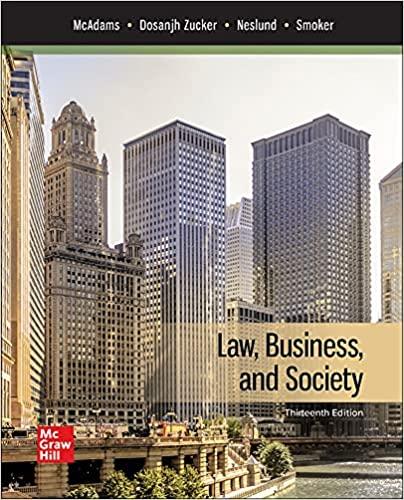Rohit Bansal moved in 2014 from his government job at the New York Federal Reserve Bank to
Question:
Rohit Bansal moved in 2014 from his government job at the New York Federal Reserve Bank to Wall Street mega-bank Goldman Sachs, which is regulated by the Federal Reserve. Bansal reportedly had been coached by Goldman Sachs executive Joseph Jiampietro about how to get the new job. Then, after making the move, Bansal allegedly obtained leaked Federal Reserve documents and passed them to Jiampietro. When the leaks were discovered, Bansal was fired by Goldman Sachs. He pleaded guilty to misdemeanor criminal charges and was permanently banned from the banking industry. Goldman Sachs was fined over $86 million. Jiampietro was fired by Goldman Sachs. He denies all of the allegations against him. Bansal’s story illustrates the danger in the “revolving doors” between government and industry. Regulators, like Bansal, often leave government to work for the industry they formerly regulated, and regulators often come from the very industry they are hired to regulate. A recent Sunlight Foundation study of federal lobbying calculated that 44 percent of all active contract lobbyists in 2012 had previous government experience, up from 18 percent in 1998. Troublesome as these government-industry ties may seem, we should remember that we need close associations between government agencies and the industries being regulated.
Each benefits from the expertise of the other. Further, federal conflict of interest laws do impose some restrictions on private-sector work following government service. Revolving doors encourage regulatory capture, a form of government failure that can occur when regulators are too cozy with the industry being regulated or when industry representatives have the interest and resources to offer detailed advice on agency business while the public voice, being much less focused and less well financed, is seldom or never heard by the agency. Political scientists argue that regulatory capture of both agencies and congressional committees sometimes produces a stable, nearly impregnable iron triangle. Powerful interest groups (often businesses like Goldman Sachs) occupy one corner of the triangle, congressional committees are at another corner, and agency bureaucrats (like Bansal) occupy the third. In the resulting alliance, each group cultivates its own welfare by providing political support (from interest groups to members of Congress), by writing favorable laws (from Congress to interest groups), and by agency enforcement of those laws in ways favorable to the interest groups and Congress. The likely result is diminished attention to the public good.
Step by Step Answer:

Law Business And Society
ISBN: 9781260247794
13th Edition
Authors: Tony McAdams, Kiren Dosanjh Zucker, Kristofer Neslund, Kari Smoker





